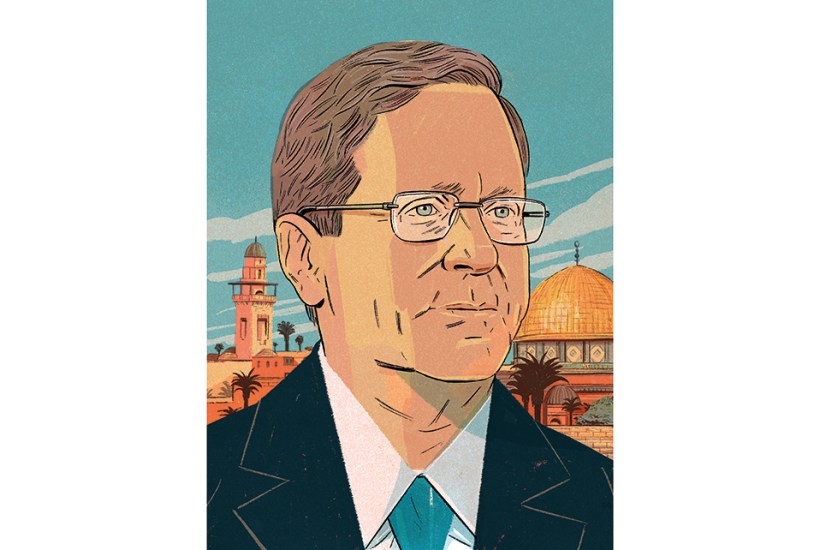President Isaac ‘Bougie’ Herzog is Israeli aristocracy. His father, Chaim Herzog, was the sixth president, serving between 1983 and 1993; his grandfather Yitzhak Herzog was chief rabbi; his maternal uncle was Abba Eban, the most famous of the country’s foreign ministers. After leading the Israeli Labor party and the parliamentary opposition in the Knesset between 2013 and 2017, Isaac became Israel’s 11th president in July 2021.
Already a subscriber? Log in
Subscribe for just $2 a week
Try a month of The Spectator Australia absolutely free and without commitment. Not only that but – if you choose to continue – you’ll pay just $2 a week for your first year.
- Unlimited access to spectator.com.au and app
- The weekly edition on the Spectator Australia app
- Spectator podcasts and newsletters
- Full access to spectator.co.uk
Or
Unlock this article
You might disagree with half of it, but you’ll enjoy reading all of it. Try your first month for free, then just $2 a week for the remainder of your first year.








Comments
Don't miss out
Join the conversation with other Spectator Australia readers. Subscribe to leave a comment.
SUBSCRIBEAlready a subscriber? Log in